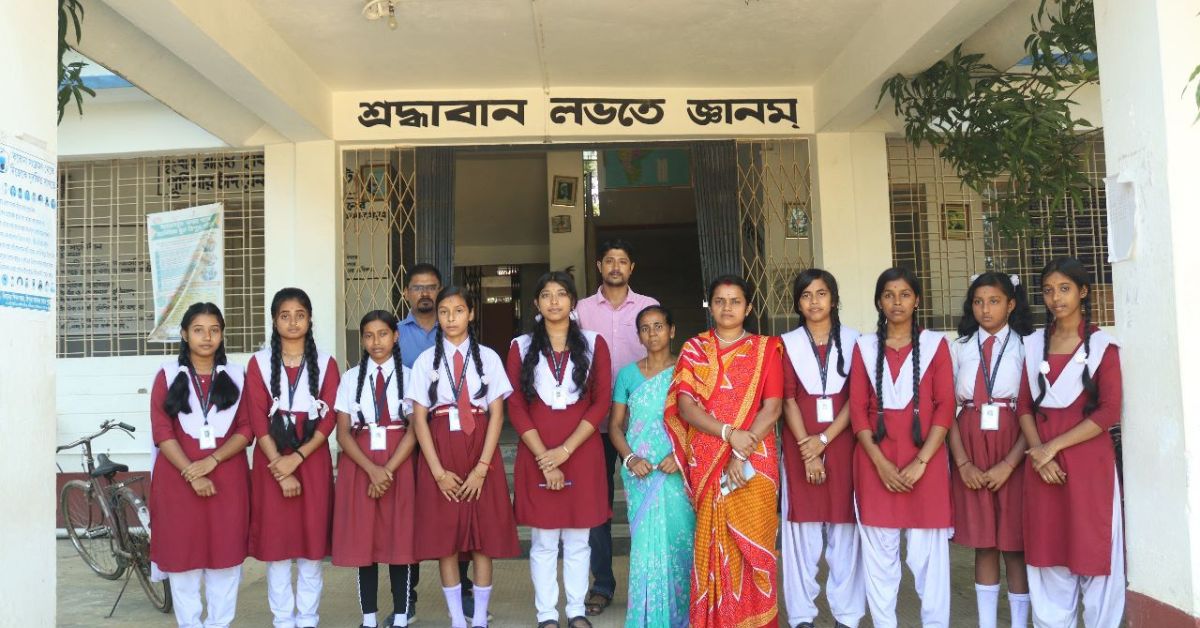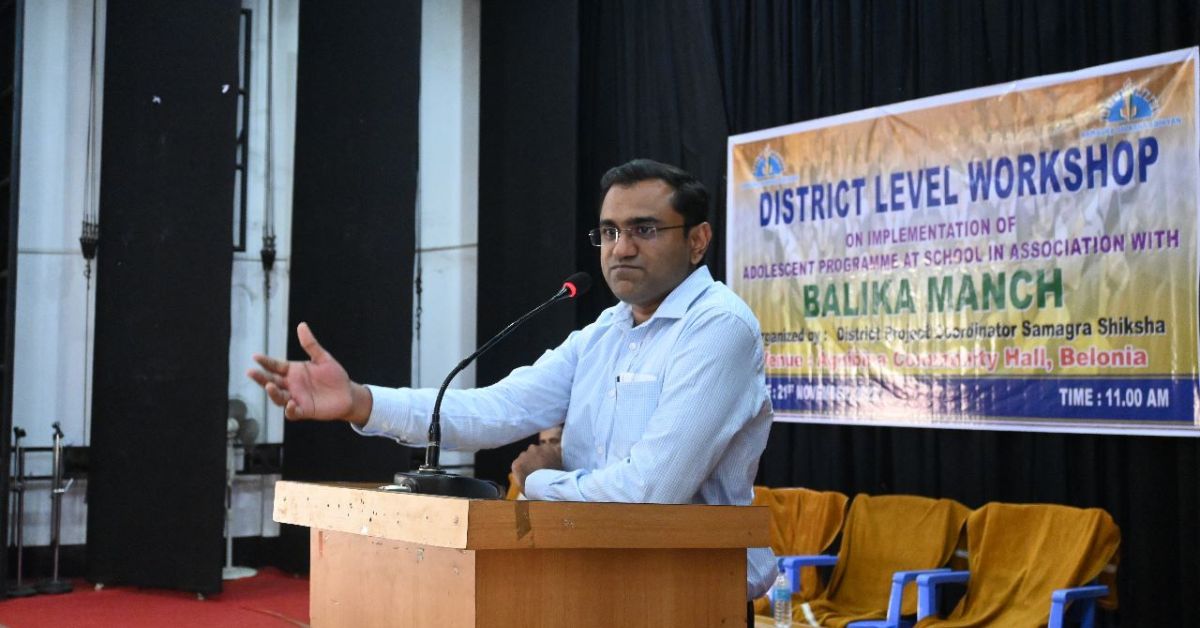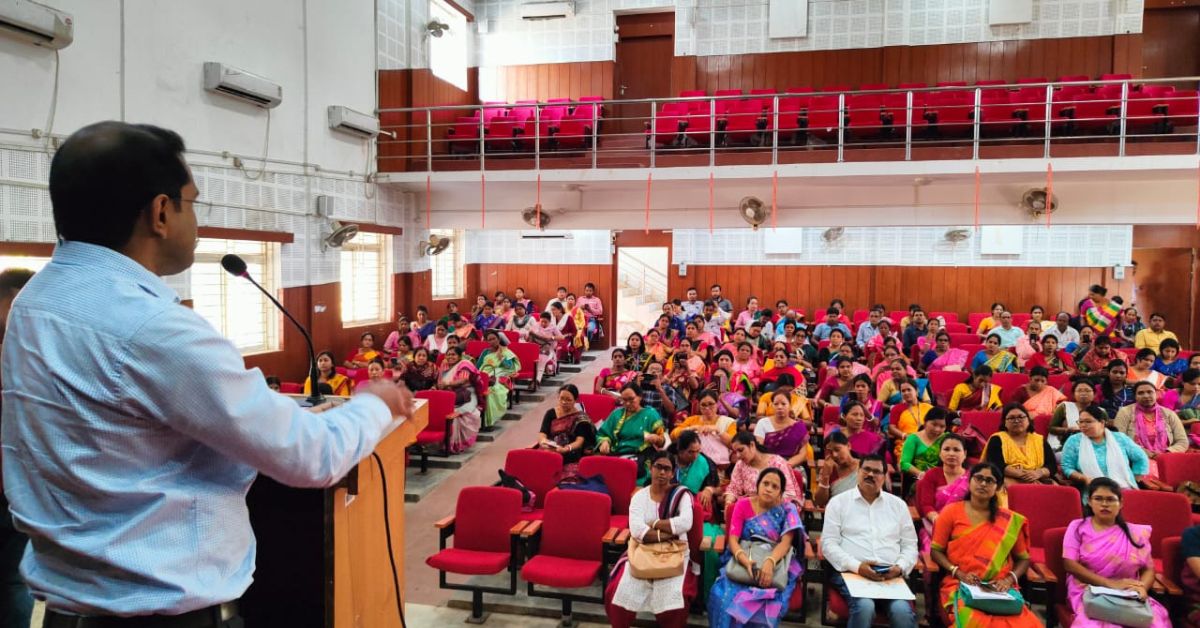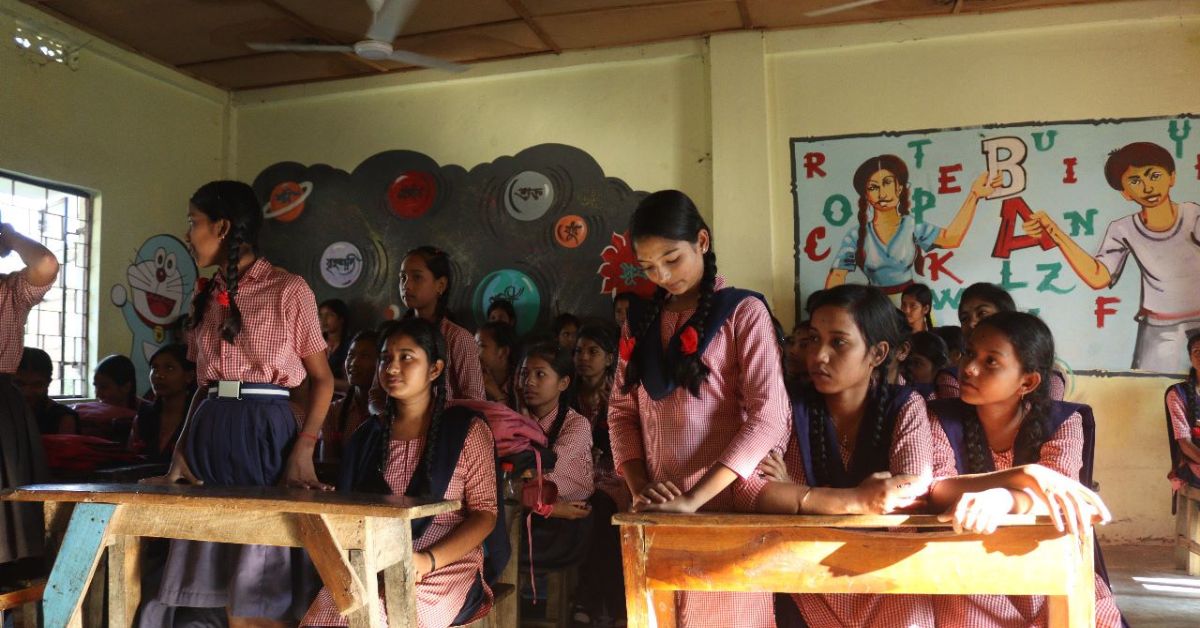Last year, on her way home from school, 16-year-old Jyotsana Akhtar from Tripura’s Amzadnagar village heard people whispering while looking at her. When she overheard their conversation, she was taken aback to learn that her marriage was fixed!
“When I returned home, my baba and maa didn’t mention anything about the marriage. I found out from the villagers that I was to marry a man twice my age who had been divorced. It seemed like all my fears were soon to turn into reality, and I did not know if I would ever return to school,” Jyotsana tells The Better India.
However, she retaliated and refused to get married so early. “I wanted to study further and get a good job, if possible earn better than the man with whom my marriage was fixed. But my parents did not understand this,” she adds.
Within a week, she approached ‘Balika Manch’, a school club, and reached out to teachers with her problem. Through them, the district administration intervened and prevented her marriage.

“The officials informed my parents how early marriage would affect my physical and mental health and also told them that child marriage was prohibited by the law. They made them sign an affidavit promising they would not get me married till I turned 18,” shares Jyotsana, who is currently a student in Class 10.
In the past year, 90 young girls have been saved from early marriages, thanks to the District Magistrate of South Tripura district — Saju Vaheed. We sat down with him to understand more about the initiative in the Northeastern district.
The battle against child marriages in Tripura
As part of the ‘Beti Bachao, Beti Padhao’ scheme, ‘Balika Manch’ was started in 2020 by the then collector Debapriya Bardhan to educate girls on adolescence and reproductive health. But the initiative turned dormant as schools shut amid the COVID-19 pandemic.
In 2021, Saju Vaheed — a 2015 batch IAS officer from Kerala — took over and joined as the Collector of South Tripura district and revived the initiative in 2022.
In conversation with The Better India, Saju says, “Before reviving this project, I got to know that many female students of Classes 8, 9, and 10 were dropping out of school. The education department informed me that it was because of child marriages.”

“So in mid-2022, we conducted a survey and found out that 215 such girls got married in 2020 and the number was 209 in 2021. This comprised over 50 percent of the total dropout rate,” he adds.
He shares that they observed that the majority of girls were getting married when they were between Classes 6 to 9. “This means that girls were getting married as soon as they were entering puberty,” he informs.
According to the National Family Health Survey-5, 40.1 percent of women aged 20–24 years were married before the age of 18 years in Tripura — the third highest after West Bengal (41.6 percent) and Bihar (40.8 percent).
“I noticed that a high percentage of underage girls are getting married in Tripura. Another issue is that it’s hard to detect ongoing child marriages because they often involve local cooperation. Typically, we only find out about the marriage through the girl’s boyfriend, and sometimes we’re notified at the last minute, making it very difficult to prevent the marriage,” he shares.
“Besides, departments like health and social welfare would only get to know about these marriages when these young girls got pregnant and reached out to avail government schemes. Even though the departments knew it was illegal for these young girls to be married, they found themselves helpless when they found out about the girls’ early pregnancies,” he adds.

Considering it his duty as DM to prevent child marriages, the IAS officer brought together all the departments and decided to utilise Balika Manch as a tool for child marriage prevention in the district.
A three-tiered approach to secure the future of young girls
The IAS officer informs that the Balika Manch is a club of school-going girls from Class 6 to 12.
“A female teacher is appointed as the chairman of the club. In addition, a female student is appointed as the convenor who keeps track of the female students’ attendance in their classes. If a girl is absent for more than a week, she reports about it to the chairman. On learning this, the Balika Manch representatives visit the absentee’s house to enquire,” says Saju.
“If they learn that the family is forcing the girl to get married, they try to convince the family to get her back to school citing legal complications of the act,” he adds.
For this, the administration has formed WhatsApp groups of Balika Manch representatives, women school management committees, members of the Childline, child welfare committees, and district-level officials.
“On the WhatsApp group, Balika Manch representatives inform the group members about the case. For instance, in cases where the parents are not convinced, then administrative support is sought. This is when our second layer of officials comes into the picture. It comprises a one-stop centre (where young girls can reach out to experts for counselling), a district child protection unit, counsellors, psychologists, and legal practitioners who reach out to families to convince them. Most of the cases get resolved in the second layer,” he informs.

“But when the families start questioning our rights to prevent the marriage, we activate our third layer. My sub-divisional magistrate rushes to the spot and tells the parents that the administration shall file an FIR against the family as child marriage is a punishable offence. But even then, if families go ahead, we send police officers to their homes and register an FIR against the family. We then get an affidavit signed by the parents stating that they’ll not marry off their daughters until they are 18,” says the collector.
With timely intervention, Saju has been able to prevent 90 planned child marriages in the district in the past year with the help of 158 school clubs across the district.
Talking about the impact of the work, he says, “I believe if we are able to continue this way for another year, we will be able to eradicate child marriages in our district. Seeing the progress of the work, the state government aims to expand this initiative across Tripura.”
“This work is deeply satisfying to me because when these girls talk to me, I realise that we’re not just preventing marriages; we’re saving lives. These young girls now have a platform to voice their concerns. While I’m involved in various other development projects, this one is particularly dear to me. I believe it will ensure a better future for generations to come,” says Saju.
Edited by Pranita Bhat; All photos: Saju Vaheed.
No comments:
Post a Comment